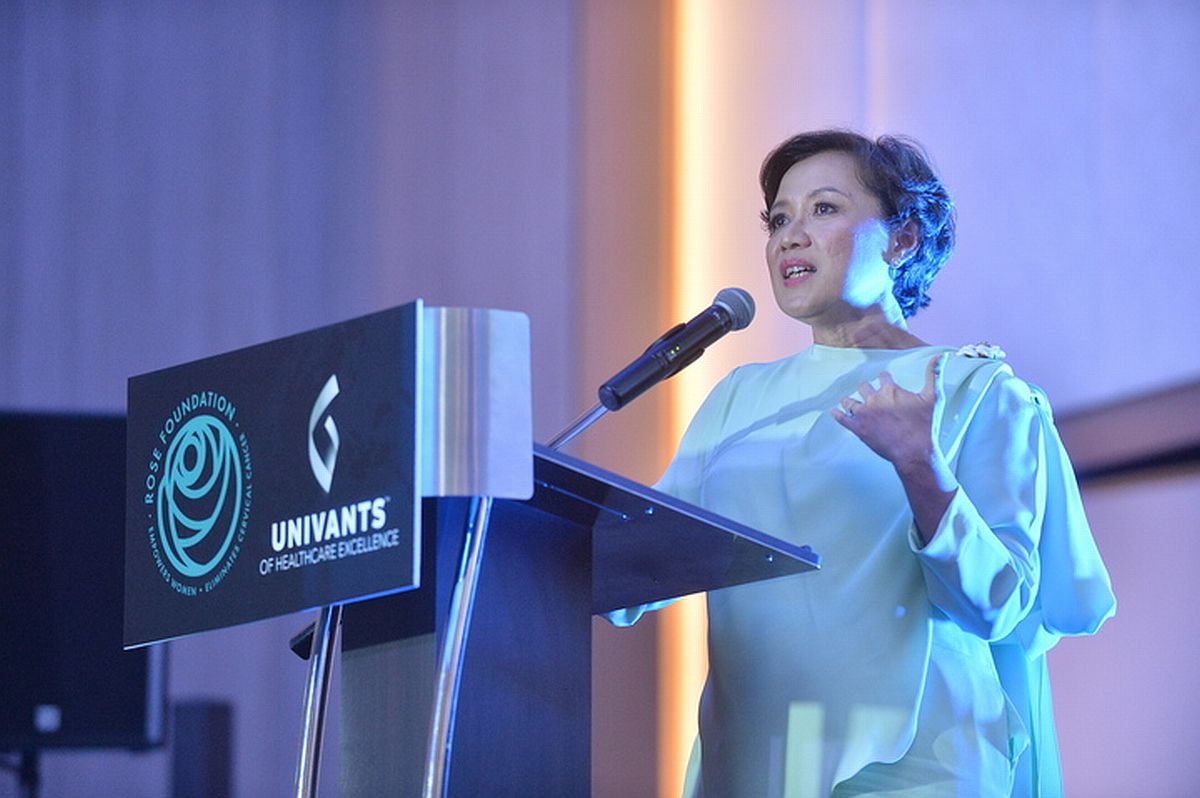As we reflect on the recently concluded launch of the Global HPV Consortium in KL on 5th September, an event that brought together experts, policymakers, and advocates from around the world, I find myself energised by the insights shared and the opportunities that lie ahead.
The discussions and exchange of ideas during the Convening were enlightening and inspiring, and they reaffirmed the urgency of our mission: the prevention and control of HPV and cervical cancer and the ultimate goal of eliminating this cancer, which claims 350,000 lives each year.
Cervical cancer is a formidable adversary, it is a silent killer that has persisted for far too long, but it need not be so.
There exists a highly effective vaccine against the HPV that causes cervical cancer which has been available worldwide since 2006, and together with the advent of simpler and more accurate methods for screening such as the HPV DNA self-screen, the field has been reinvigorated to forge ahead with elimination targets and goals.
It was therefore heartening to see the commitment and dedication demonstrated by advocates, health care professionals, and policymakers during the Convening.
This collective drive is a testament to our shared vision of a world without cervical cancer. As I always say, “there is no excuse” not to eliminate cervical cancer, except for investment, political will, and partnerships.
These words resonate deeply with the challenges we face in Malaysia. Cervical cancer ranks as the third most common cancer among Malaysian women and is among the top 10 cancers across genders in our country, according to the Malaysia National Cancer Registry Report 2012-2016. The statistics are sobering.
Only 12.9 per cent of women in Malaysia undergo a pap smear once in their lifetime, often after giving birth, while the World Health Organization’s (WHO) target is 70 per cent HPV screening coverage for women aged 35 to 45.
The Covid-19 pandemic has further complicated matters, severely disrupting our school HPV vaccination programme, due to global supply disruptions and a significant increase in the global price of the HPV vaccine.
However, as we have learned from our successful efforts in our fight against HIV, there’s no challenge too big when we invest in the right strategies, harness political will, and forge meaningful partnerships.
The lessons from the Convening and our experience with HIV prevention demonstrate that we can indeed eliminate cervical cancer in Malaysia and beyond.
In my various roles, both in the public and private sectors, I have had the privilege of contributing to critical discussions on health care policy and advocating for effective interventions.
Serving as the president of the International AIDS Society and as chairman of the Malaysian AIDS Foundation and Rose Foundation, the latter being an organisation committed to eliminating cervical cancer in Malaysia and the region, I have witnessed the power of partnerships and collective action.
In my experience with working with HIV, the two key factors for an effective HIV response are the coming together of stakeholders and effective advocacy.
Getting the affected population to be the voice and demand for treatments has contributed to accelerating the global response to HIV. Similarly, to reach our goals of eliminating cervical cancer, we will need the voices of those affected, especially young girls.
In my work with the ROSE Foundation, we have embarked on various projects to improve health care services.
One of these initiatives involved integrating mobile phones with the eHealth platform, which streamlines registration and data collection processes. This has led to an efficient system that can assist women in navigating a complex health care network.
I firmly believe that the Global HPV Consortium exemplifies the power of collaborative efforts and can be harnessed to make significant strides to eliminate cervical cancer.
This can involve sharing knowledge across nations to implement impactful technology for improved screening, especially in vulnerable communities within low and middle-income countries, as well as amplifying the voices of advocates and champions in this endeavour.
Our vision for Malaysia is clear: a future where cervical cancer is a rare disease and where women have access to timely screenings and HPV vaccinations.
With the onset of the Covid pandemic, self-testing became a mainstream method for the diagnosis of diseases. This increased awareness can be used to encourage self-sampling and enable timely detection of HPV infections.
Our future lies in evidence-informed integrated efforts and investments in health care to lead to healthier, more prosperous communities.
The Convening has shown us that we are not alone in this endeavour; we have the support of countries, champions, and influencers who share our commitment.
I would like to reiterate that the path to eliminating cervical cancer may be challenging, but it is one we must embark on with unwavering determination.
We owe it to all the women in this country, to their children, their husbands and the communities around them.
Together, we can embrace integrated solutions, drive change, and make cervical cancer a thing of the past.
As I always reiterate, we need to shift our approach of thinking of health as a cost and start thinking of it as an investment, with significant returns for the entire world.
Prof Dr Adeeba Kamarulzaman is President and Pro Vice-Chancellor at Monash University Malaysia.
- This is the personal opinion of the writer or publication and does not necessarily represent the views of CodeBlue.




